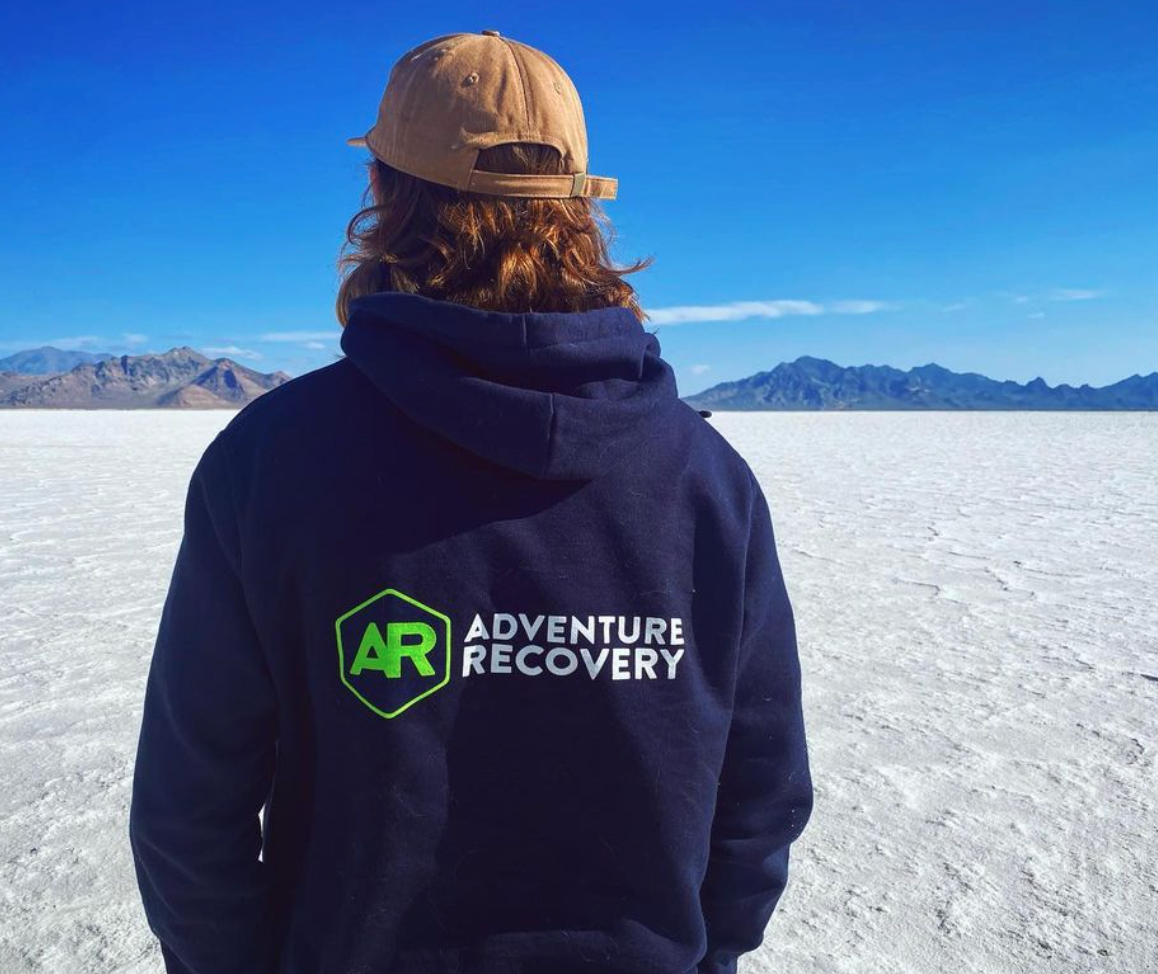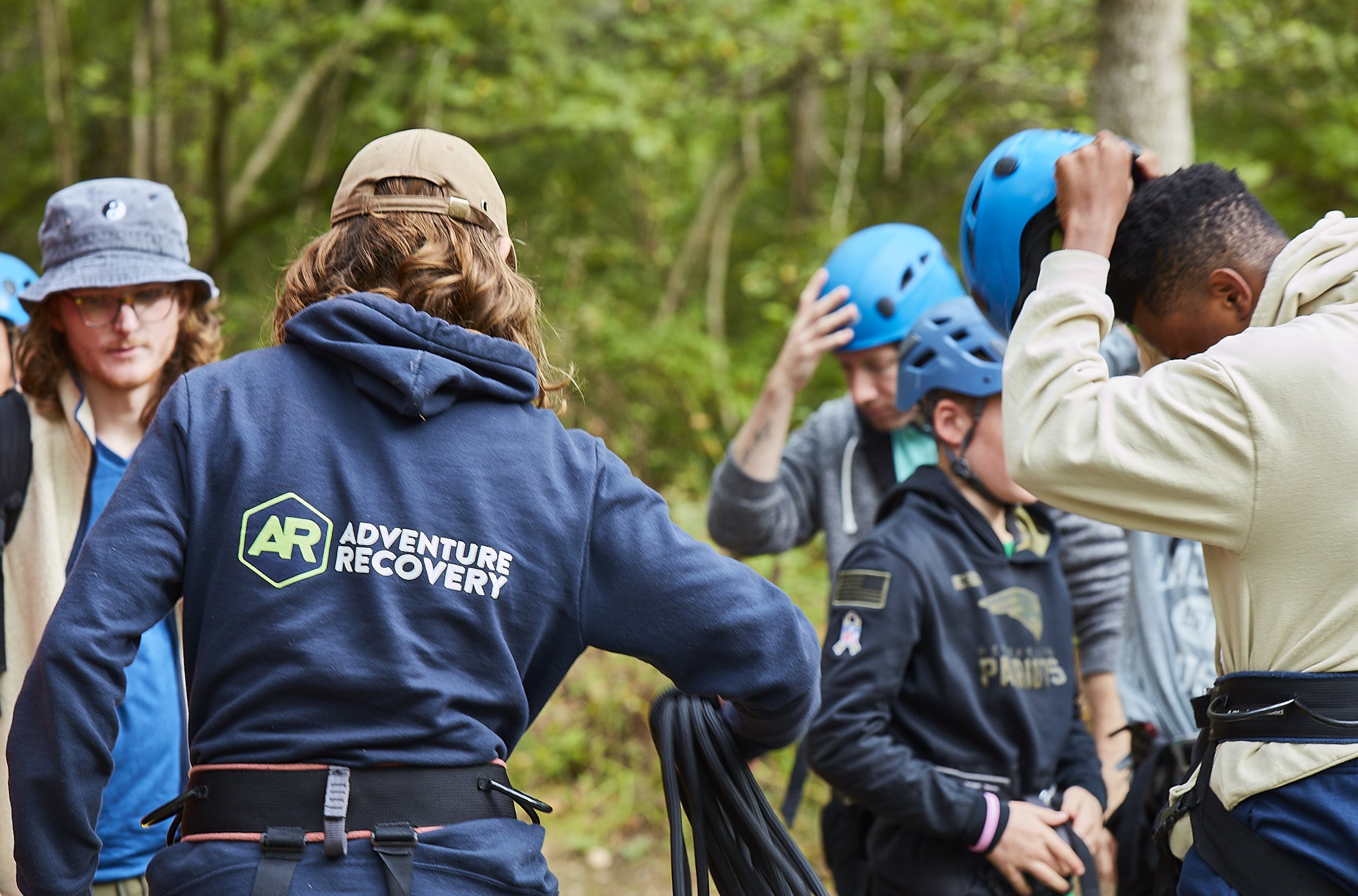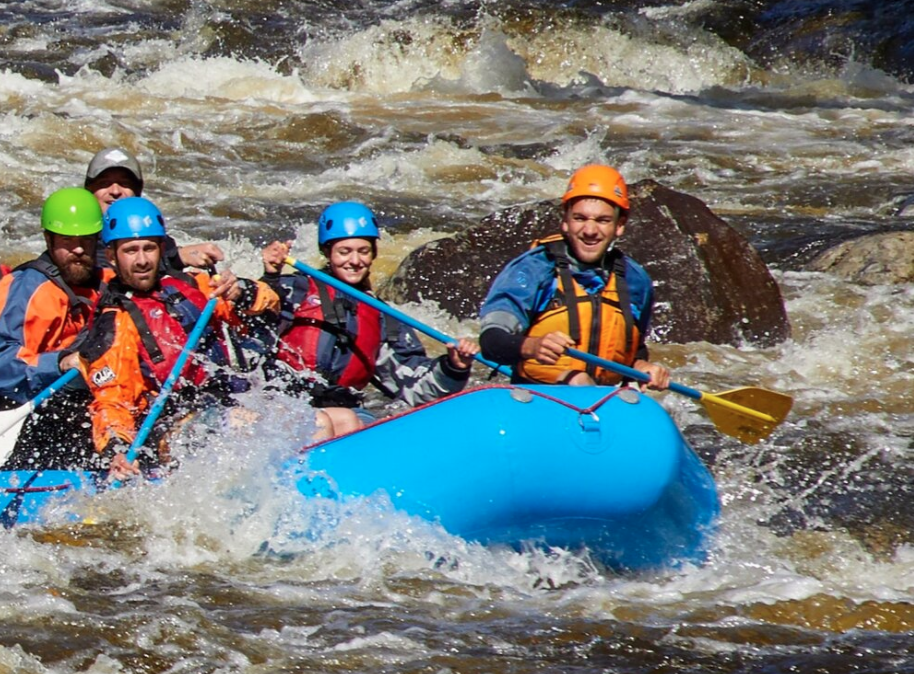
ADVENTURE OUTPATIENT
The Adventure Recovery mission is to guide people through the internal and external wilderness, cultivating a lifelong passion for learning and adventure.
“Growth doesn't take place in a vacuum. Awareness of self must be experienced in the full capacity of life. Working with individuals now, I see them take newfound skills into new environments, where they can grapple with change. This is where the rubber meets the road, in the real world.” —Nate Bennick, National Field Director for Adventure Recovery
One of our peers is an expert in the fields of mental health and addiction treatment and he refers to Adventure Recovery as “adventure outpatient”. It’s not the exact definition that encompasses what we do but for the sake of conversation, it works. Many of our team members, including Nate Bennick, National Field Director, Seth Gottlieb, National Field Manager, Tim Walsh, AR Founder, and Rourke Weaver, Community Relations Director, have direct experience in outdoor adventure therapy models, having served in leadership roles as program directors, milieu coordinators, and field guides. With Adventure Recovery, we’ve created something different. AR is not a wilderness therapy model. Period.
Furthermore, in creating AR, we are forging something distinctive and complimentary based on our decades of background and experience in the mental health and addiction fields. The field has evolved away from the wilderness model and Adventure Recovery is very clear on this matter. AR provides services that are based on empathy, empowerment, connection, camaraderie, and conscientious collaboration. AR uses a compassionate approach to all that it does, that does not engage in traditional methods, but instead meets the client where they are, letting the individual choose the path.
What Is Adventure Outpatient?
Traditionally, outpatient is defined as: healthcare services provided on an outpatient basis, receiving structured support while still engaging in your day-to-day life. This type of care can be appealing because one is able to heal in the context of home, in other words — in one’s natural habitat.
Environment and habits impact us and our perspectives greatly. Where we spend our time, who we spend it with, and how we fill our days can determine our mental and physical well-being. There are some basic elements that go into a healthy lifestyle. Exercise, rest, connection, self-care, confidence, challenges, personal responsibility, the capacity to ask for help—all impact our well-being. We’ve learned that exercise is vital for our health—both physical and mental. In addition, relationships play a significant role and studies show that social connection can help prevent a sedentary lifestyle and depression. Furthermore, research shows that when we feel a sense of community and purpose, we tend to bounce back from setbacks, with deeper resilience and emotional stability overall.
Time in nature has many positive benefits and serves as a perfect backdrop to learn and apply new behaviors. The research reveals that wilderness has a favorable impact on mood and disposition, brain function and cognition, and can boost our immunity. In addition, there are multiple evidence-based reasons cited in scientific studies as to why nature and adventure serve mental health.
Adventure in nature can be utilized as a prevention tool for dangerous high-risk behaviors, and studies show greenspaces can positively affect substance use disorder. Some factors contributing to the outcomes include diminished stress, greater capacity for healthy relationship building, and self-awareness. These factors are significant when it comes to addiction and mental health care.
The Mind on Adventure
When we move our bodies intentionally in natural settings, we initiate multiple avenues of well-being. Exercise invigorates and releases happy hormones and neurotransmitters, which benefit our physiology and psychology. What’s more, the immune system is influenced, according to recent research. The evidence is clear that when regularly immersed in activities outside, mood is improved, and general disposition is uplifted. We feel better, period. Furthermore, the results for mental health support increase with coaching and peer support. Together, we learn new tools, challenge ourselves and one another, and develop healthy capacity and self-efficacy. We build confidence and community simultaneously. This is powerful and appealing for many since learning adventure skills ensures consistent and sustainable results that one can apply daily in their own lives. To reap the benefits, we must develop new habits and skills and exploring outdoors is the perfect way to cultivate a healthy body and a healthy mind. Adventure is a mindset—a way of life. And, the bottom line is, it works. We see it time and again. Movement, connection, growth.
Adventure as a Way of Life
Adventure can have a powerful effect on mental health and substance use disorder clients. And there are challenges to being removed from daily life for treatment to consider, especially upon re-entry. When we are trying to learn new, healthful habits it can feel easy to apply when we’re in a new place. But, applying the positive patterns in the same environment where we developed toxic, destructive behaviors is a whole other story.
Many of us know this first-hand. We may have experienced treatment and upon returning home, we lose momentum, fall into old patterns, or fall off the path. Perhaps we’re triggered or we are influenced by unhealthy peers or family members. We may end up back in an abusive situation or feel unable to change. Or we may not feel confident to face the world or engage in activities outside. So, what do we need? Support, guidance, connection—these are all key. And, for many of us, sitting in a group setting helps, but we need more—we need to move our bodies, breathe fresh air, develop self-efficacy, and create new patterns.
Is Adventure Recovery Outpatient?
Time outside is an impactful intervention, and the goal is to learn how to apply an adventure mindset to our daily lives. Here, at AR, we aren’t just weekend warriors. Immersive time outdoors is a huge part of our lives and our habit patterns. It informs our perspective. We’ve learned that in order to sustain the healing power of the tools we cultivate outside; we have to be consistent. When we learn new ways to care for ourselves, develop relationships with like-minded individuals, and feel motivated each day, it is far easier to create lasting change. This is how we find healing—in the ongoing community striving towards the same goal of adventure. At the end of the day, it’s the joy we experience outside, together, that keeps us coming back. Life is meant to be joyful. It is challenging, but also fun.
Hence, Adventure Recovery outpatient is a slight misnomer but helps others understand the work we do. Traditional outpatient offers structured time in a clinic or facility, often including one-on-one therapy and group activities to help a client feel connected and continue the recovery path with a continuum of support. These programs tend to be clinical, and insurance driven. Some use experiential therapies but to comply with the rigor of medical, insurance-based models, programming is usually with licensed clinicians, typically indoors. This can limit the opportunity for integration and real-life application.
ADVENTURE RECOVERY OUTCOMES + GOALS
The intended outcomes of the AR approach are for clients to implement a healthy lifestyle including emotional flexibility and resilience, skillful outdoor experience capacity, and competent adventure sport awareness, to improve overall mental health, recovery and well-being, bolster emotional self-regulation, and create a community of like-minded change makers who share similar backgrounds and interests.
Adventure Recovery (AR) activities, including hiking, backpacking, climbing/rappelling, kayaking/rafting, surfing/river surfing, bushcraft, camp craft, skiing/snowboarding, and rites of passage ceremonies. Having a wide range of activities allows for participants to learn, grow, and develop lasting skills in a multitude of experiences and expand their repertoire outside. Additionally, the wide range of activities allows for participants to choose what they are most passionate about, furthering their sense of self-awareness, confidence, and self-efficacy.
Each activity is designed with a progression of skills to further participants' self-awareness, and personal mastery. It is through this progression that participants have opportunities to learn about themselves as an individual and in relation to others, as well as their natural environment. In addition, they form a foundation of understanding in each respective activity. Participants are given challenges appropriate to them and encouraged to choose their own level of challenge to further instill self-empowerment and to ensure personal growth, positive change, and learning. AR team members utilize mental health informed theories like, Motivational Interviewing, somatic experiencing, and vagal nerve activation to guide clients through experiences and to help clients determine their best course of action to achieve their goals.
AR Briefing + Debriefing
All experiences have a briefing period before the activity to allow participants and facilitators to review pertinent information, skills, potential risks, and to have personal check in times. Upon completing the activity, participants and facilitators debrief the events to further their understanding of the experience, the skills taught, and areas that may need continued practice, while also shedding light on the greater teachings and metaphors applicable to real-life behaviors and opportunities.
AR team members are trained in a myriad of experiential learning techniques, including conscious communication, recovery coaching, mindfulness, mental health first aid, and various additional types of learning styles, related to their respective areas of expertise. This helps AR staff create custom curriculum and provide multiple avenues of learning for any given subject to meet the individual differences of each client. Furthermore, AR staff use these techniques to help participants learn and use personal coping skills to navigate the stresses of their natural environment and the activity. Paired with briefing/debriefing, clients are then encouraged to reflect how this relates to their lives.
Each participant signs consents/releases and completes a mentorship agreement where goals and objectives are clearly outlined to discuss the mission, outcomes, and plan to accommodate experiences that provide the foundation for lasting change. AR facilitators help clients choose experiences that match their personal goals and provide support, coaching, and mentorship for success.




